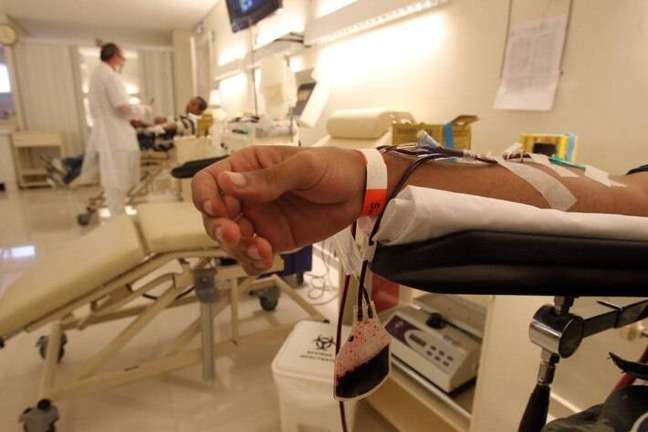UK researchers’ discovery could benefit those who depend on regular blood transfusions for life, people with rare blood types and Jehovah’s Witnesses
Currently, who needs to replace red blood cells – red blood cells – depends on a blood transfusion from the donation. But a new study from the University of Bristol in the UK has shown that it is possible to reproduce these blood cells stamina cells of human blood collected from the patient. The scientific novelty may help people with diseases such as thalassemia, sickle cell anemia, and some cancers to have fewer blood transfusions throughout their lives.

In addition to putting an end to the problems of waiting times for transfusions due to the lack of blood donations, the technology is expected to help improve the health and quality of life of those living with diseases caused by a lack of red blood cells.
“Since this is freshly grown blood, this could reduce the frequency of transfusions, reduce the treatment burden for patients and the unwanted side effects of frequent transfusions,” the study report states. “Potentially, these patients will need fewer transfusions, reducing the iron load in the tissues.”
Other possible beneficiaries are people with rare blood types, who have difficulty finding compatible donors. Jehovah’s Witnesseswho do not carry out blood transfusions from donors for religious reasons, may also use the technique.
blood “sieve”
To create the red blood cells in the laboratory, scientists take the patient’s blood and put it in a “centrifuge” machine. Therefore, it is possible to separate the white blood cells from the blood and a small number of stem cells.
Collected, the stem cells are “purified” and incubated for about three weeks in a series of liquids that contain various nutrients and growth factors. ‘These special cocktails of ingredients found naturally in the human body allow cells to multiply and turn into red blood cells,’ say the scientists who worked on the research.
clinical test
To make sure the new treatment can realize its potential, Bristol researchers are conducting a clinical trial on volunteers to evaluate the performance of lab-grown red blood cells versus donated ones. “We are also carrying out a research program to produce larger volumes of red blood cells,” they say.
In addition to researchers from the University of Bristol, the study is also a partner of the UK’s National Health Service (NHS) and the blood and transplant research units of the National Institute for Health and Care Research.
🇧🇷The best content in your email for free. Choose your favorite Earth Newsletter. Click here!
Source: Terra
Benjamin Smith is a fashion journalist and author at Gossipify, known for his coverage of the latest fashion trends and industry insights. He writes about clothing, shoes, accessories, and runway shows, providing in-depth analysis and unique perspectives. He’s respected for his ability to spot emerging designers and trends, and for providing practical fashion advice to readers.








